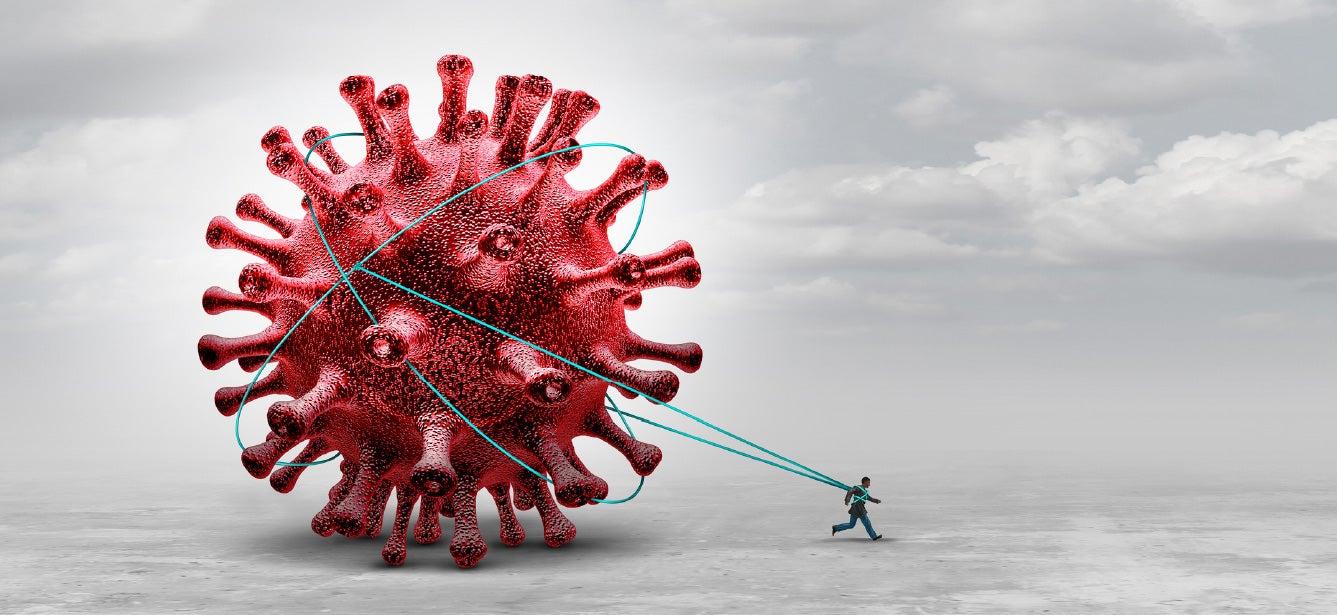
The situation around the novel coronavirus (COVID-19) is changing rapidly, especially as U.S. coronavirus cases continue to rise. NCOA is taking proactive steps to share the best information we have to protect the public’s health. Now is the time for older adults to stay informed and follow basic tips to protect yourself and those around you.
Older Adults at Higher Risk
The Centers for Disease Control and Prevention (CDC) has identified older adults and people who have severe chronic medical conditions like heart, lung, or kidney disease at higher risk for more serious COVID-19. According to the CDC, eight out of 10 coronavirus deaths in the U.S. have been in older adults aged 65+.1
This is likely because as people age, their immune systems change, making it harder for their body to fight off diseases and infection, and because many older adults are also more likely to have underlying health conditions that make it harder to cope with and recover from the virus.2 Age increases the risk that the respiratory system or lungs will shut down when an older person has COVID-19 disease.
The CDC has emphasized that the best way to prevent illness is to avoid exposure. That’s why the CDC is recommending that people at higher risk take the following actions:
- Stock up on supplies.
- Take everyday precautions to keep space between yourself and others.
- When you go out in public, keep away from others who are sick or who have symptoms of COVID-19, limit close contact, and wash your hands often.
- Avoid crowds as much as possible.
- Avoid cruise travel and non-essential air travel.
- During a COVID-19 outbreak in your community, stay home as much as possible to further reduce your risk of being exposed.
Anthony S. Fauci, M.D., Director of the National Institute of Allergy and Infectious Diseases, said that people with serious chronic conditions, especially the elderly, should think twice about traveling or going to crowded places. He advised that these individuals take the simple steps of “not putting yourself in a situation—whatever that might be—that might increase the risk given your situation.”
...Individuals (should) take the simple steps of “not putting yourself in a situation—whatever that might be—that might increase the risk given your situation.”
The CDC is urging individuals to stay calm and Share Facts, Not Fear. Among the CDC’s advice are these common-sense tips:
- Wash your hands often with soap and water for at least 20 seconds, especially after going to the bathroom; before eating; and after blowing your nose, coughing, or sneezing.
- Avoid touching your eyes, nose, and mouth with unwashed hands.
- Stay home when you are sick.
- Cover your cough or sneeze with a tissue, then throw the tissue in the trash.
- Clean and disinfect frequently touched surfaces every day.
How to Support Older Adults
People of all ages can support older adults during this time. Many older adults depend on services and supports provided in their homes or in the community to maintain their health and independence. The CDC recommends that family members, neighbors, and caregivers:
- Know what medications your loved one is taking and see if you can help them have extra on hand.
- Monitor food and other medical supplies (oxygen, incontinence, dialysis, wound care) needed and create a back-up plan.
- Stock up on non-perishable food items to have on hand in your home to minimize trips to stores.
- If you care for a loved one living in a care facility, monitor the situation, ask about the health of the other residents frequently, and know the protocol if there is an outbreak.
- Help with disinfecting frequently touched surfaces.
Beware of COVID-19 Scams
Unfortunately, scammers are taking advantage of fears surrounding the coronavirus. The Federal Trade Commission has identified several of them and is offering tips to protect yourself and others. These include watching for emails claiming to be from the CDC saying they have information about the virus and ignoring online offers for vaccinations. There currently are no vaccines, pills, potions, lotions, lozenges, or other prescription or over-the-counter products available to treat or cure COVID-19 online or in stores.
If you receive an email asking you to donate to a nonprofit that is fighting the coronavirus, make sure to research the organization first through an independent charity rating service such as Charity Navigator.
Tips for Community-Based Organizations
Local organizations serving older adults, including senior centers, should contact their local health department, which can provide the latest specific guidance on how to respond in the area. Senior centers and other local organizations also can play an important role in sharing trusted information with older adults. Our National Institute of Senior Centers has gathered information and resources related to how senior centers are responding.
A March 13 memorandum from the Center for Medicare & Medicaid Services is advising nursing homes to take extensive measures to prevent COVID-19 infection of residents and staff, including:
- Restrict visitation of all visitors and non-essential health care personnel except in end-of-life circumstances.
- Screen residents and staff for signs of infection.
- Cancel group activities such as communal dining.
- Offer alternatives for residents who wish to socialize but still stay isolated.
- Advise anyone who enters the facility to monitor themselves for signs of COVID-19 infection for 14 days after contact.
- Communicate all updates and announcement through multiple channels.
Remember the Seasonal Flu, Too
It’s also important to remember that we are still in the middle of the seasonal flu season, which impacts older adults every year. According to the CDC, it’s estimated that 70-85% of seasonal flu-related deaths have occurred in people aged 65+.
While there is no vaccine for the coronavirus, it’s never too late for individuals to get their annual flu shot. Talk to your doctor or pharmacist about how you can protect yourself and those around you. Don’t forget that Medicare covers vaccines for influenza and other diseases.
With COVID-19 and all health issues, when in doubt, the best course forward is always to consult with your doctor. Many physicians and health care providers are asking that people call or send their questions via email first before coming into the office.
Note: This blog post was updated on November 6, 2020 with the latest information from the Centers for Disease Control (CDC). Please check back frequently for updates and visit CDC for the most current news.
Source: https://www.cdc.gov/coronavirus/2019-ncov/need-extra-precautions/older-adults.html
Source: https://www.cdc.gov/coronavirus/2019-ncov/need-extra-precautions/older-adults.html



